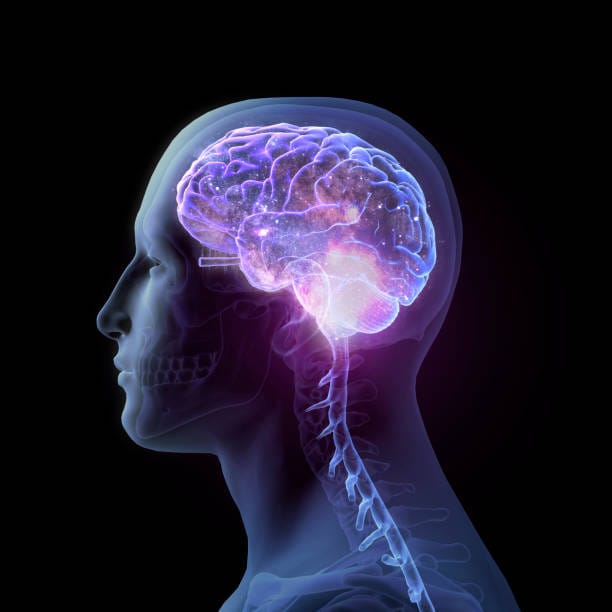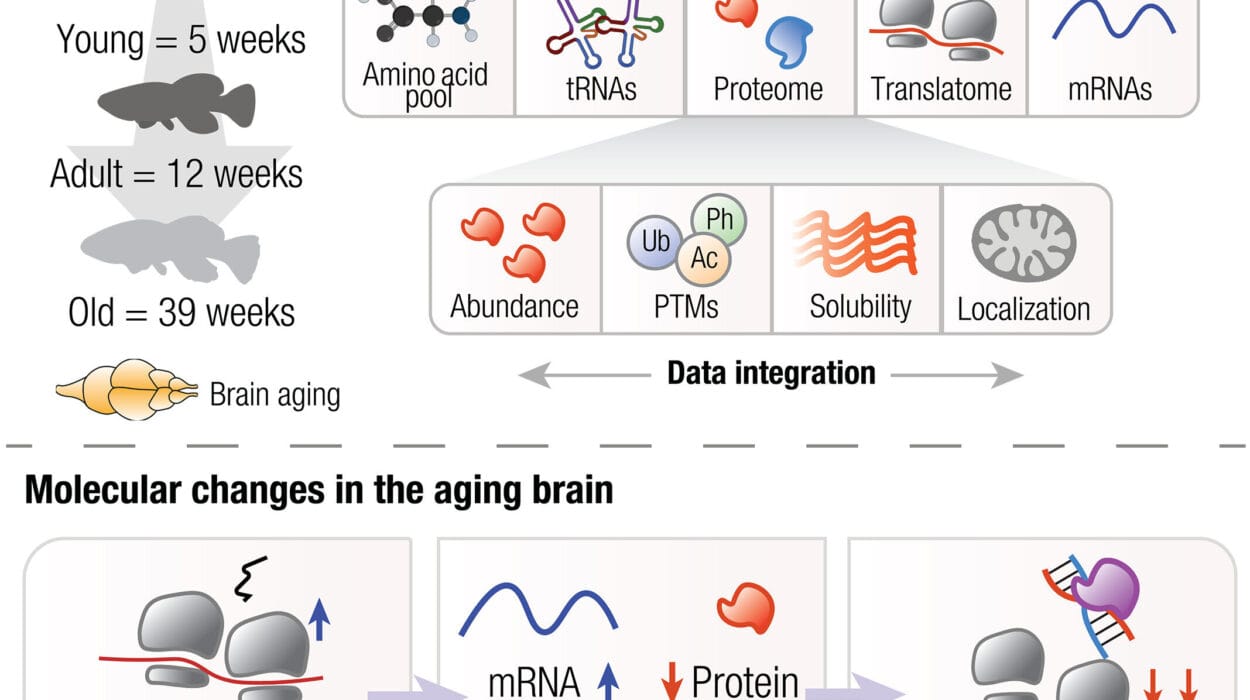Academic performance is often seen simply as the product of hard work, discipline, and access to resources. Yet behind every test score, every essay, and every problem solved lies a complex, miraculous organ: the human brain. It is the engine driving the entire learning process, weaving together memory, attention, emotion, and reasoning. To truly understand academic success, we must explore the brain—not just as a metaphor but as the biological foundation of knowledge, motivation, and performance.
The brain’s role in academic performance is both profound and subtle, blending biology with psychology, neurology with education. In this article, we journey into the inner workings of the brain to reveal how it shapes learning, why some students excel while others struggle, and what science tells us about optimizing brain health for better academic outcomes.
The Brain: A Symphony of Networks in Constant Motion
At the heart of learning is the brain’s remarkable ability to change itself—known as neuroplasticity. Unlike outdated notions of a fixed brain capacity, modern neuroscience reveals that our brains are dynamic, adapting to new information and experiences throughout life. When a student encounters a new concept or skill, networks of neurons light up, forging new connections and strengthening old ones. This process enables understanding and skill mastery.
The cerebral cortex, especially the prefrontal cortex, plays a crucial role in higher cognitive functions—reasoning, planning, decision-making, and self-control—all essential for academic tasks. Meanwhile, deeper structures like the hippocampus are critical for forming and retrieving memories, allowing students to store information and recall it during exams or discussions.
The brain’s incredible complexity is comparable to a symphony orchestra. Each region performs its specialized part, from the visual cortex processing images to the auditory cortex deciphering sounds and language. When these regions coordinate effectively, a student can comprehend, analyze, and apply knowledge. But when communication breaks down or certain areas underperform, academic difficulties may arise.
Memory: The Keeper of Knowledge
One cannot discuss the brain’s influence on academic performance without highlighting memory’s central role. Memory is more than a simple storage system; it is a dynamic process involving encoding, consolidation, and retrieval.
Encoding happens when sensory input is transformed into a format the brain can store. Attention is a gatekeeper here—without focus, memories cannot form effectively. For example, a distracted student will have difficulty encoding lecture material, no matter how intelligent.
Consolidation stabilizes memories, a process often enhanced during sleep. Research shows that adequate sleep following learning allows the brain to replay and reinforce neural patterns, cementing knowledge in long-term memory. This explains why “cramming” all night without rest usually results in poor retention.
Finally, retrieval is the ability to access stored information when needed. Successful academic performance depends on effective retrieval—not just knowing material, but being able to summon it on demand during exams or assignments.
The hippocampus, a seahorse-shaped structure deep within the brain, acts as a memory hub. Damage to this area, as seen in amnesia patients, causes severe learning impairments. Meanwhile, the prefrontal cortex helps organize and strategize how to access memories efficiently, highlighting the brain’s coordination in learning.
Attention: The Brain’s Spotlight on Learning
Attention is the cognitive process that determines what the brain focuses on amid a flood of sensory information. It acts like a spotlight, enhancing the processing of selected stimuli while filtering out distractions.
Academic tasks demand sustained attention, often for prolonged periods. The brain’s attentional networks, including regions like the anterior cingulate cortex and parietal lobes, regulate this focus. When these systems function well, students can maintain concentration through lectures, reading, and problem-solving.
However, attention is fragile. Stress, anxiety, fatigue, and environmental distractions can disrupt it, leading to scattered thoughts and reduced learning efficiency. Disorders such as Attention Deficit Hyperactivity Disorder (ADHD) are rooted in neurological differences affecting attention control, highlighting the brain’s delicate balance in academic engagement.
Training attention, through mindfulness or cognitive exercises, has shown promise in enhancing academic outcomes by increasing the brain’s ability to resist distractions and sustain mental effort.
Executive Functions: The Brain’s Management System
Beyond memory and attention, academic success hinges on executive functions—cognitive processes that manage goal-directed behavior. These include planning, working memory, inhibition, cognitive flexibility, and problem-solving.
The prefrontal cortex, often dubbed the brain’s CEO, orchestrates these functions. It allows students to plan study schedules, juggle multiple assignments, resist impulsive distractions like checking phones, and adapt to new challenges.
For example, working memory lets students hold several pieces of information in mind, such as steps in a math problem, while inhibition helps them stay on task despite internal urges to quit or external distractions.
These executive functions develop throughout childhood and adolescence, explaining why younger students may struggle with complex tasks requiring organization or sustained effort. Moreover, stress and sleep deprivation can impair executive functioning, emphasizing the intertwined nature of brain health and academic performance.
Emotions and Motivation: The Brain’s Drive for Learning
Emotions profoundly affect how the brain learns. The limbic system, including the amygdala, processes emotions that can either facilitate or hinder academic performance.
Positive emotions such as curiosity and enthusiasm enhance the brain’s receptivity to new information, fostering deeper engagement. In contrast, anxiety and fear, common around tests or public speaking, activate stress responses that impair memory and concentration.
Motivation—the internal drive to achieve goals—is tied to the brain’s reward system, particularly the neurotransmitter dopamine. When a student anticipates success or receives praise, dopamine release motivates continued effort and learning. Conversely, lack of motivation can stem from disruptions in these neural circuits, leading to disengagement.
Understanding this emotional dimension helps educators and students recognize that academic struggles are often not just about intellect but also about emotional well-being. Encouraging positive experiences with learning can stimulate the brain’s reward pathways, boosting performance.
The Impact of Sleep on Learning and Memory
Sleep is not merely a period of rest; it is a vital process for brain health and academic success. During sleep, particularly deep and REM stages, the brain consolidates memories, clears toxins, and restores neural function.
Studies show that students deprived of sleep perform worse on tests, struggle with attention, and have impaired problem-solving abilities. The hippocampus replays the day’s learning during sleep, strengthening neural connections. Without adequate sleep, this process falters, leading to fragmented or weak memories.
Moreover, sleep regulates emotional balance. Poor sleep increases amygdala activity, heightening anxiety and stress responses, which further interfere with learning.
The brain’s intricate dependence on sleep highlights why academic schedules and study habits that neglect rest often undermine performance. Optimal brain function requires a balance of effort and recovery.
Nutrition and the Brain: Fuel for Cognitive Success
The brain consumes roughly 20% of the body’s energy despite its small size, making nutrition a key player in academic performance. Glucose is the brain’s primary fuel, but it also needs a steady supply of vitamins, minerals, and fatty acids to function efficiently.
Omega-3 fatty acids, found in fish and nuts, are crucial for building cell membranes and supporting synaptic plasticity. Deficiencies can impair memory and mood regulation. Similarly, vitamins B6, B12, and folate support neurotransmitter synthesis and cognitive health.
Hydration also affects brain performance. Even mild dehydration can reduce attention and memory, affecting classroom learning.
Poor nutrition, particularly high sugar and processed foods, can lead to energy crashes and inflammation, which disrupt cognitive functions. Conversely, balanced diets rich in whole foods promote sustained mental clarity and resilience.
Physical Exercise: Enhancing Brain Power
Exercise is often overlooked in discussions about academic performance, yet it profoundly influences brain function. Physical activity increases blood flow to the brain, delivering oxygen and nutrients essential for cognitive health.
Exercise stimulates the production of brain-derived neurotrophic factor (BDNF), a protein that supports neuron growth and plasticity. This helps in forming new neural connections vital for learning and memory.
Regular physical activity also reduces stress and anxiety by regulating cortisol and endorphins, creating a mental environment conducive to concentration and motivation.
Studies have shown that students who engage in consistent exercise perform better academically, with improved executive functioning and memory retention.
The Challenge of Learning Differences and Neurological Disorders
Not all brains operate identically. Conditions like dyslexia, ADHD, autism spectrum disorder, and other neurological differences present unique challenges for academic performance.
For example, dyslexia involves differences in brain regions responsible for language processing, leading to difficulties in reading despite normal intelligence. Understanding the neurological basis of such conditions allows for tailored educational approaches that support strengths and address challenges.
Similarly, ADHD involves impairments in attention and executive functions, often requiring specialized strategies and sometimes medication to optimize learning.
Recognizing and accommodating diverse brain profiles is essential for equitable education and unlocking every student’s potential.
Technology, the Brain, and Learning: Opportunities and Risks
The digital age has transformed education, offering unprecedented access to information and learning tools. However, technology also reshapes the brain’s functioning in complex ways.
Interactive multimedia can enhance engagement and support different learning styles, stimulating multiple brain regions. Educational apps and games encourage problem-solving and immediate feedback, promoting neuroplasticity.
Yet, excessive screen time and multitasking can fragment attention and reduce deep processing, leading to superficial learning. The brain’s reward system can be hijacked by digital distractions, making sustained academic effort more difficult.
Balancing technology use with mindful, focused study practices is crucial to harnessing its benefits without undermining brain health.
Cultivating a Growth Mindset: The Brain’s Adaptability and Academic Success
The concept of a “growth mindset,” popularized by psychologist Carol Dweck, aligns closely with neuroplasticity. Believing that intelligence and abilities can grow through effort encourages students to embrace challenges and persist despite setbacks.
Neuroscience supports this idea: the brain physically changes with learning and practice. Mistakes are not failures but opportunities to rewire and strengthen neural pathways.
Adopting a growth mindset changes how the brain approaches academic tasks, reducing fear of failure and promoting resilience, key components of sustained academic achievement.
Stress and Its Impact on the Learning Brain
Stress is a double-edged sword for academic performance. Moderate stress can motivate students to focus and prepare, but chronic or intense stress triggers a cascade of neurochemical changes that impair memory, attention, and executive function.
The amygdala’s heightened activity under stress interferes with the hippocampus’s ability to encode new memories. Cortisol, the stress hormone, can damage neurons in these regions if levels remain elevated.
Understanding the neurobiology of stress highlights the importance of emotional regulation techniques, supportive learning environments, and balanced workloads to protect the brain’s learning capacity.
The Social Brain: Learning in Connection with Others
Humans are social creatures, and the brain is wired to learn through interaction. Social learning activates brain areas involved in empathy, language, and executive control.
Classroom dynamics, peer relationships, and teacher-student interactions profoundly influence motivation and cognitive engagement. Positive social environments stimulate oxytocin release, reducing stress and enhancing trust—conditions favorable for learning.
Conversely, social isolation or conflict can trigger stress responses that impair brain function.
Recognizing the brain’s social nature reminds educators and students alike that learning is not just individual but deeply communal.
The Promise of Neuroscience in Education
The emerging field of educational neuroscience seeks to bridge brain science and teaching practice. By understanding how the brain learns, educators can design curricula and interventions that align with neural processes.
For example, spacing study sessions over time exploits memory consolidation cycles. Incorporating movement and sensory experiences taps into multisensory brain pathways. Addressing sleep hygiene supports cognitive restoration.
While neuroscience does not provide simple formulas, it offers profound insights that can transform education from rote delivery to brain-aligned learning.
Conclusion: The Brain as the Keystone of Academic Excellence
Academic performance is a window into the brain’s magnificent complexity. Each thought, memory, and problem solved is a testament to billions of neurons communicating in perfect harmony. Yet, this harmony depends on a delicate balance of attention, memory, emotion, motivation, health, and environment.
Understanding the brain’s role in learning empowers students, educators, and policymakers to foster conditions where every brain can thrive. It reminds us that academic success is not merely a measure of knowledge but a reflection of brain health, resilience, and the human spirit’s relentless quest to grow.
In the end, nurturing the brain is nurturing the future—one learner, one classroom, one discovery at a time.






